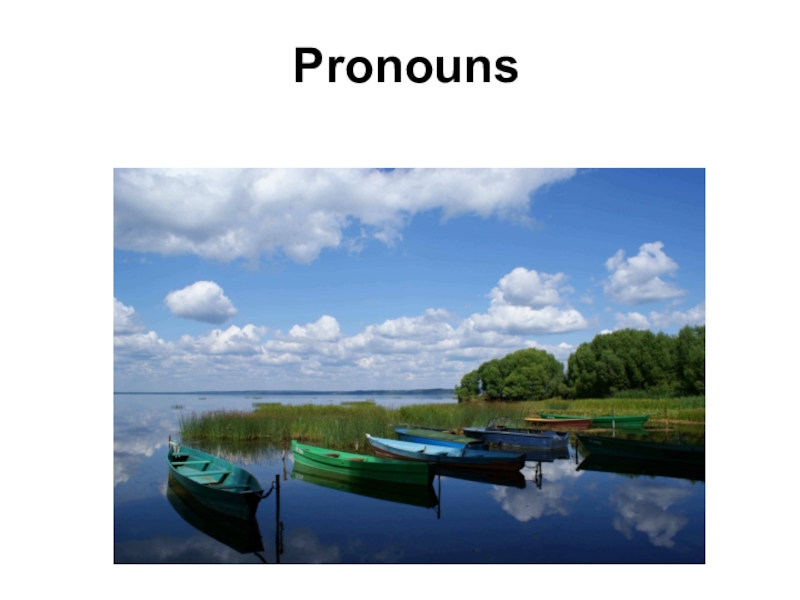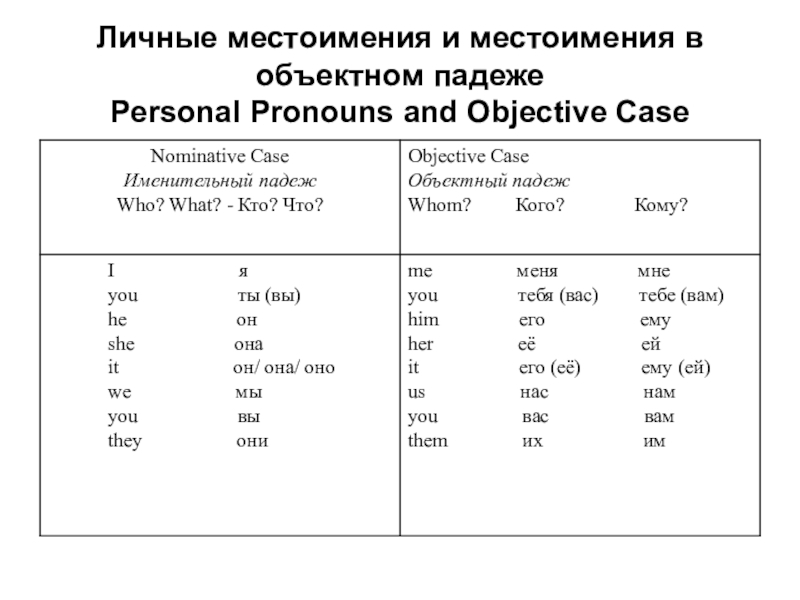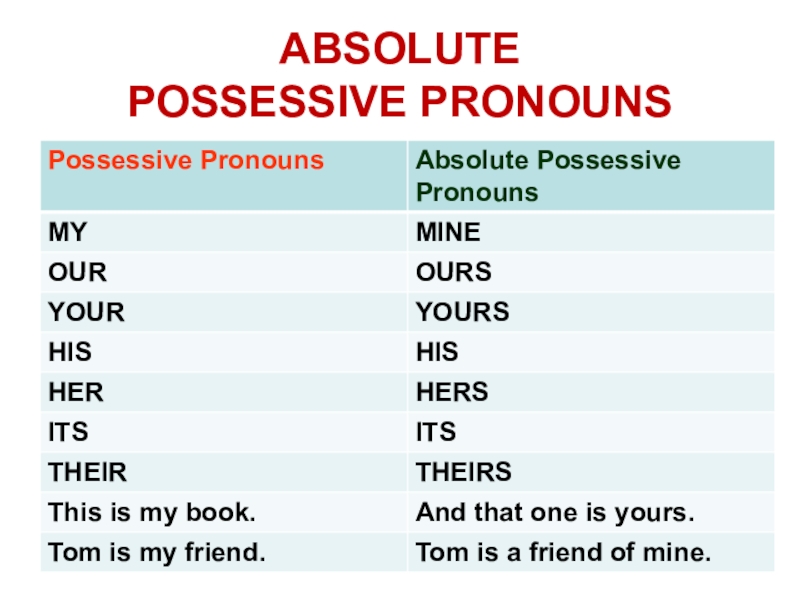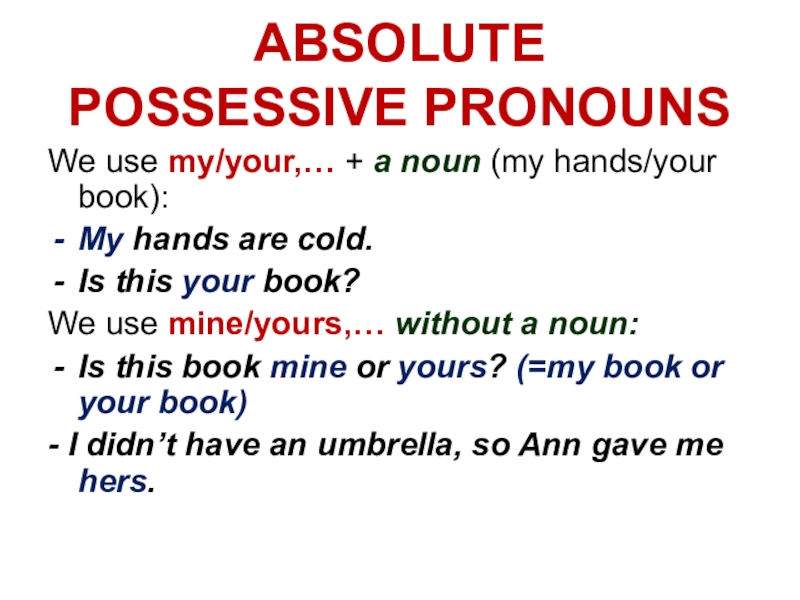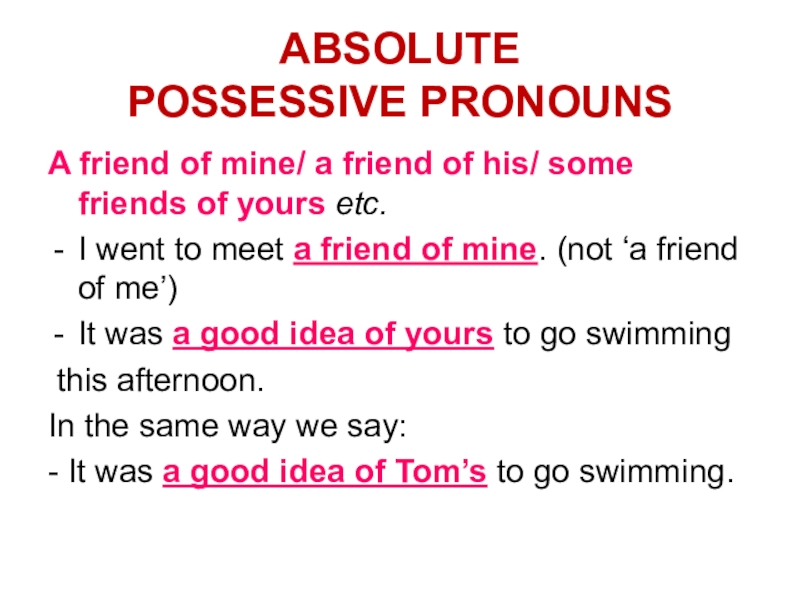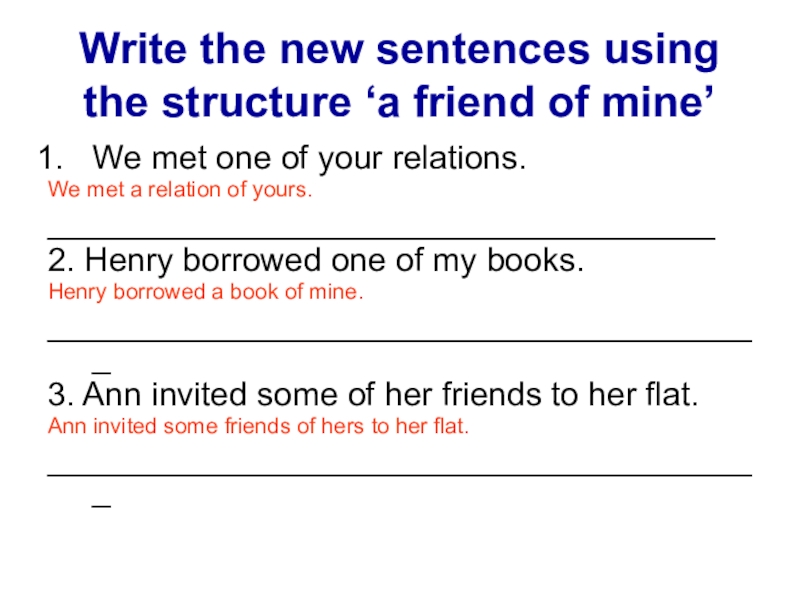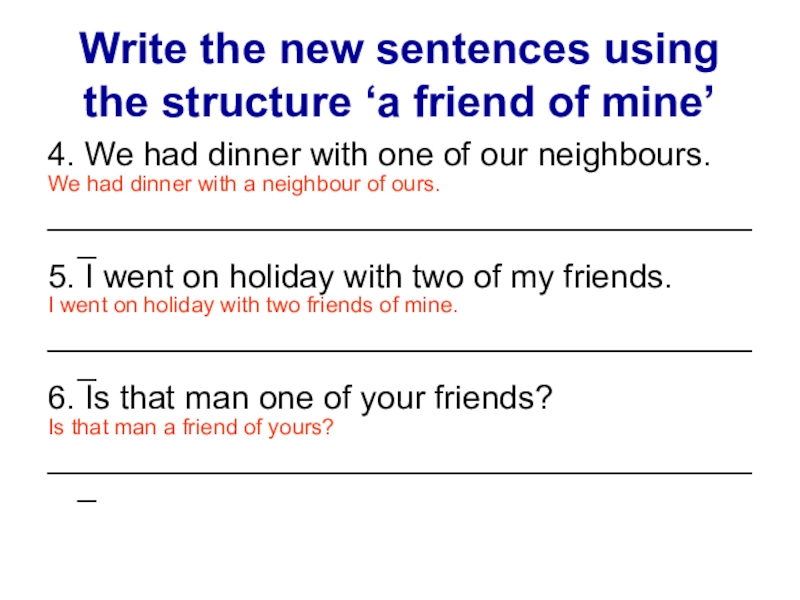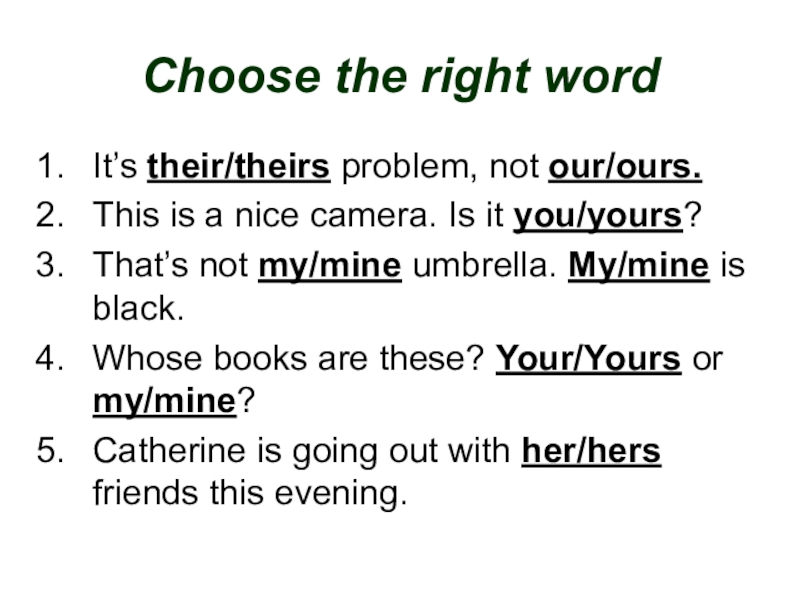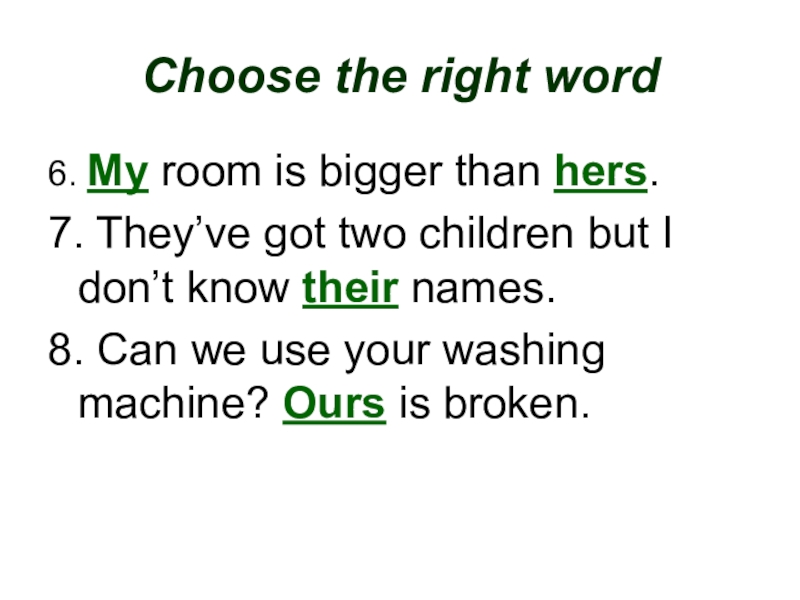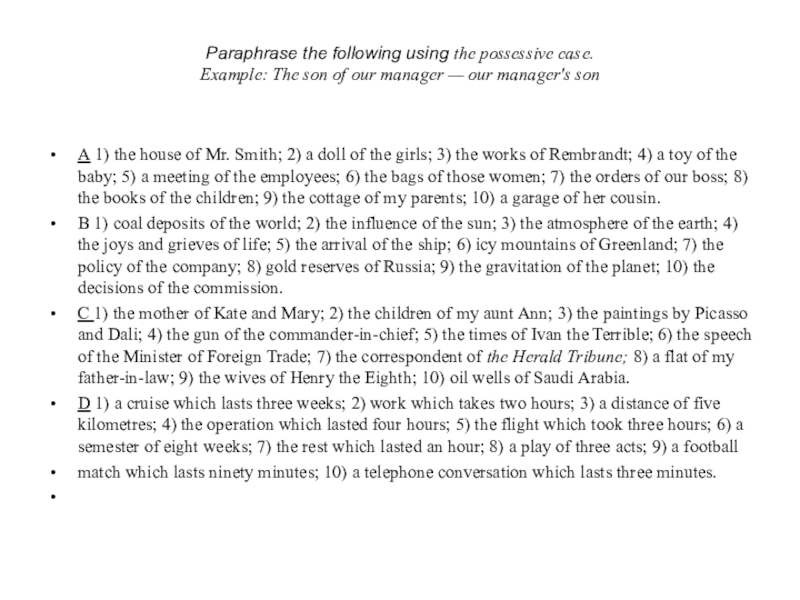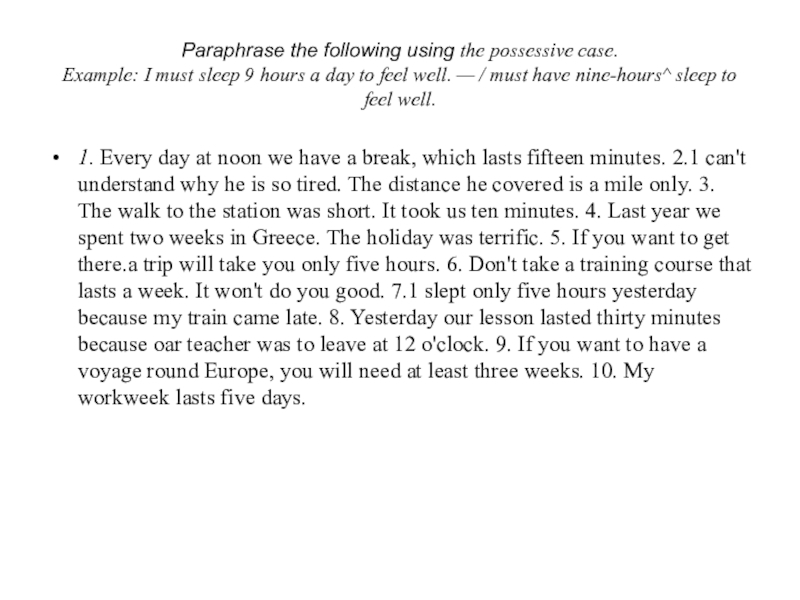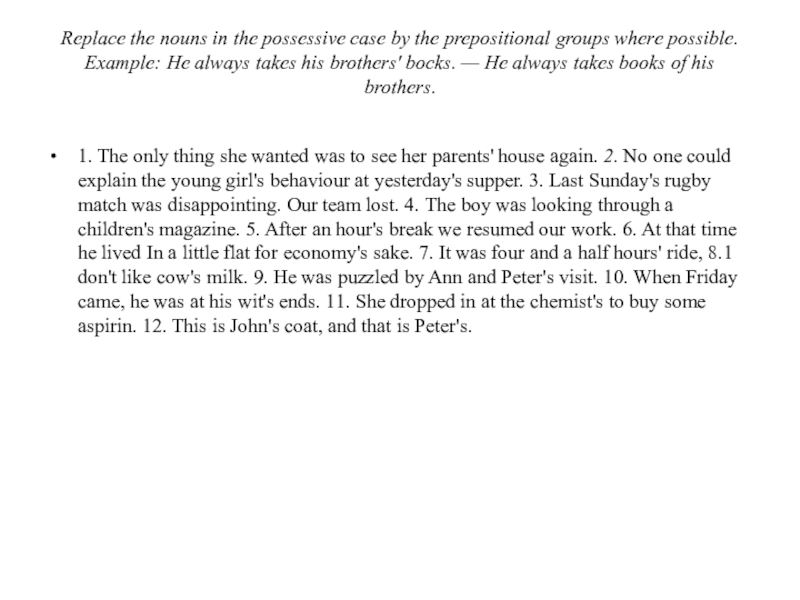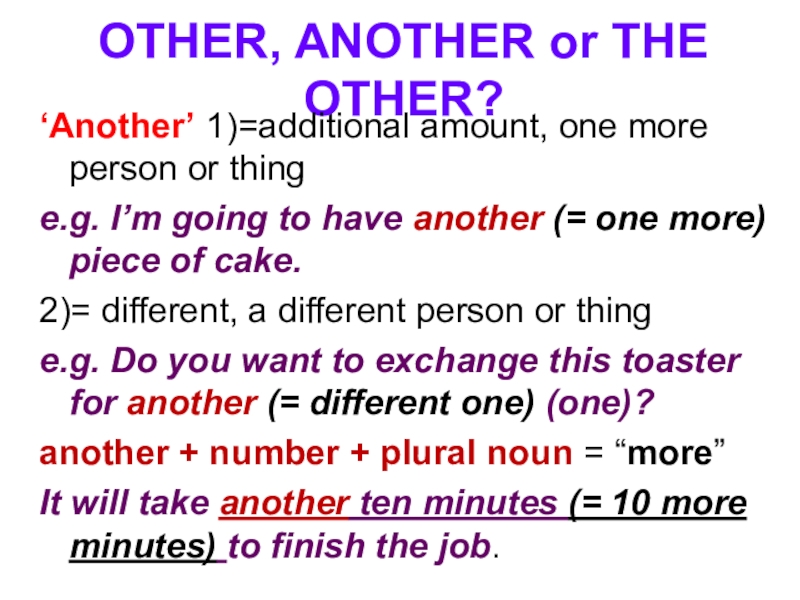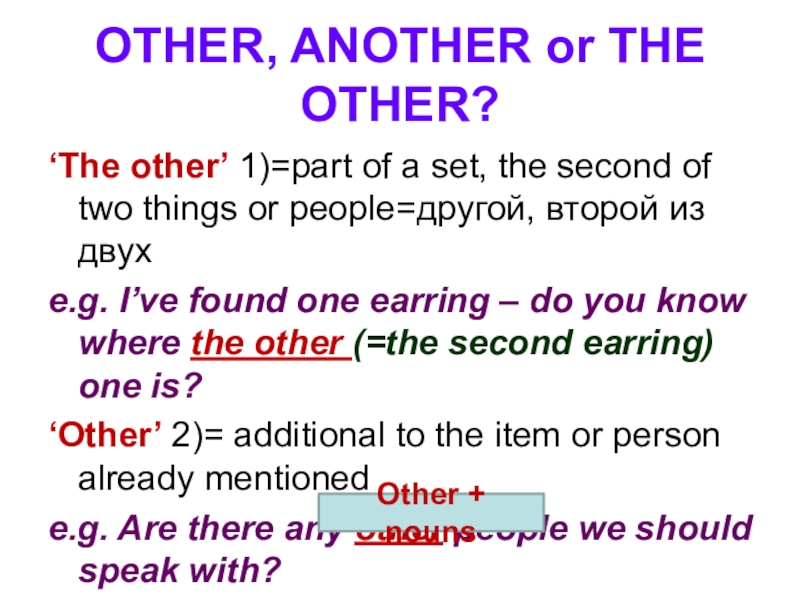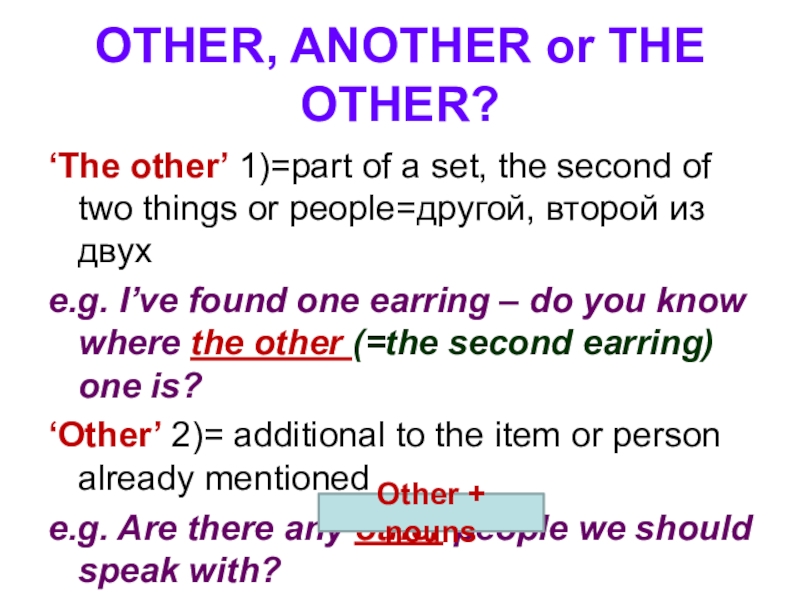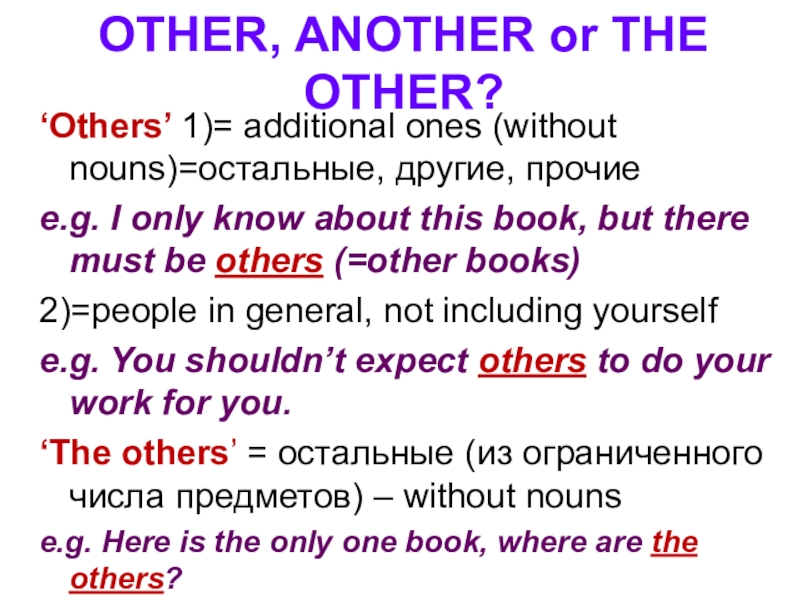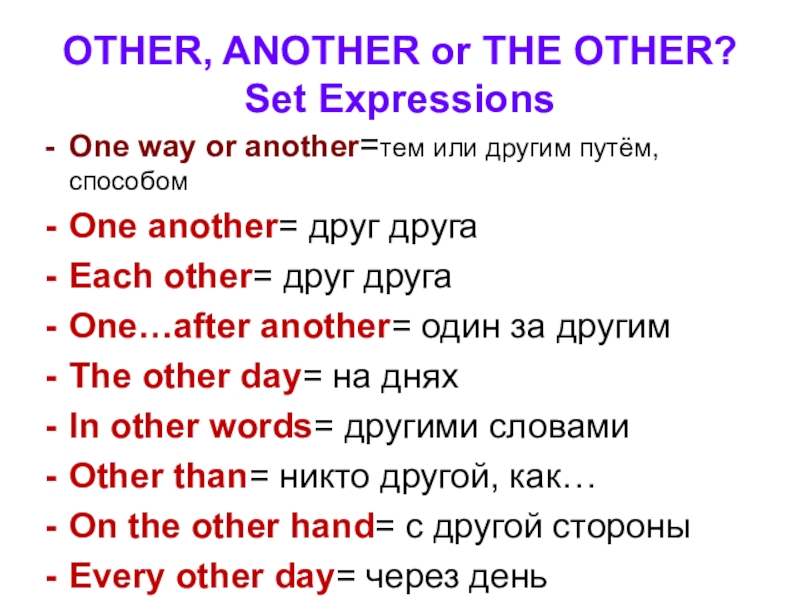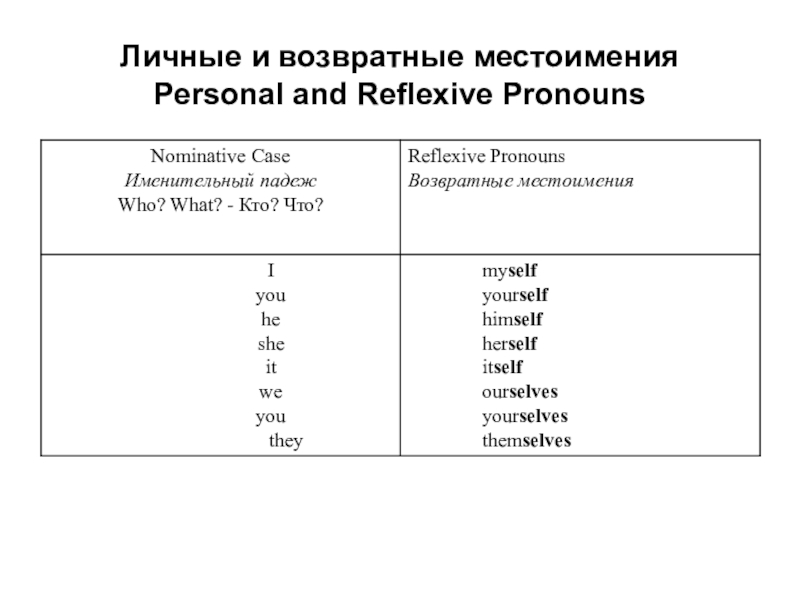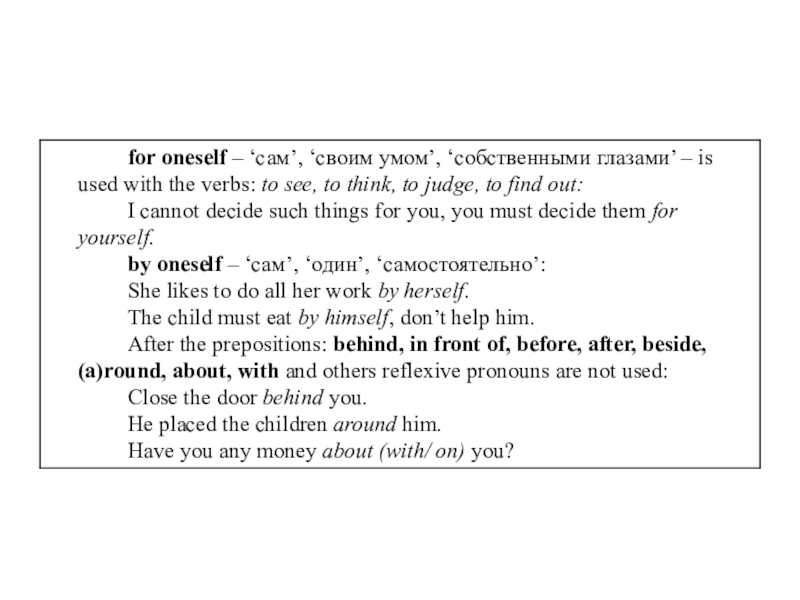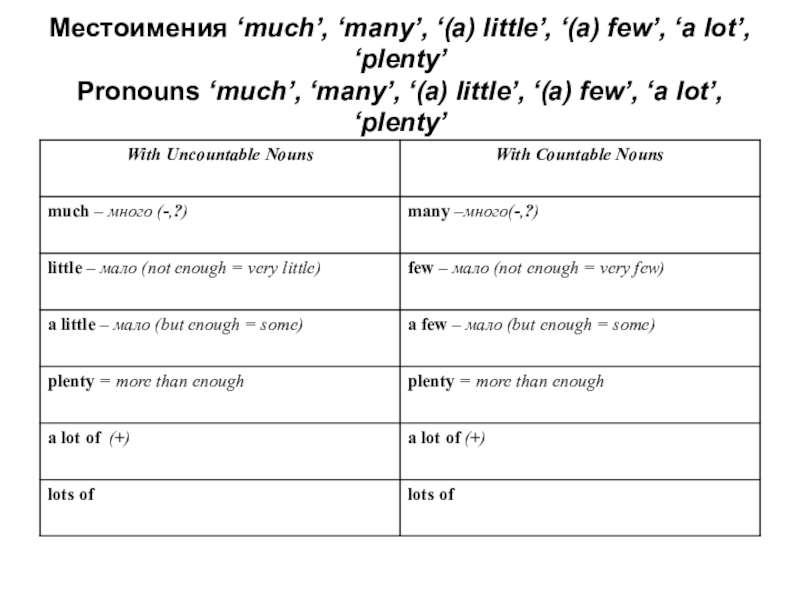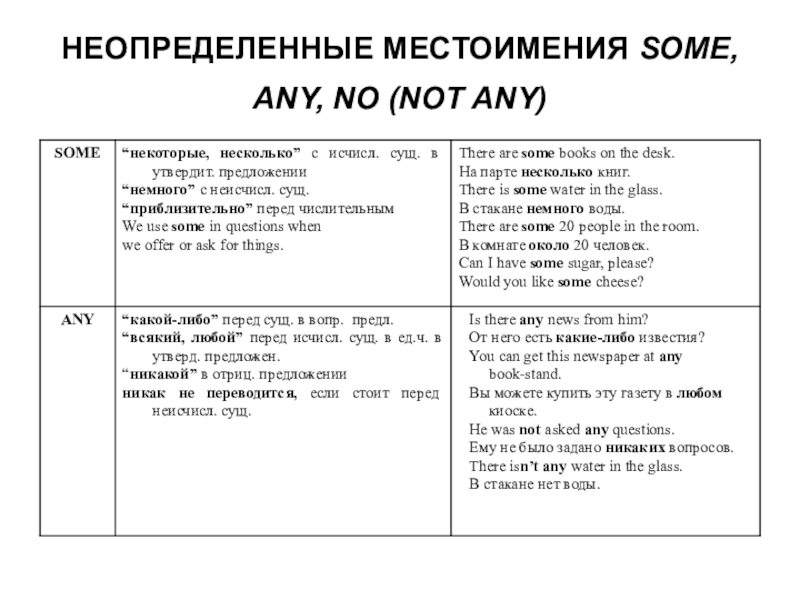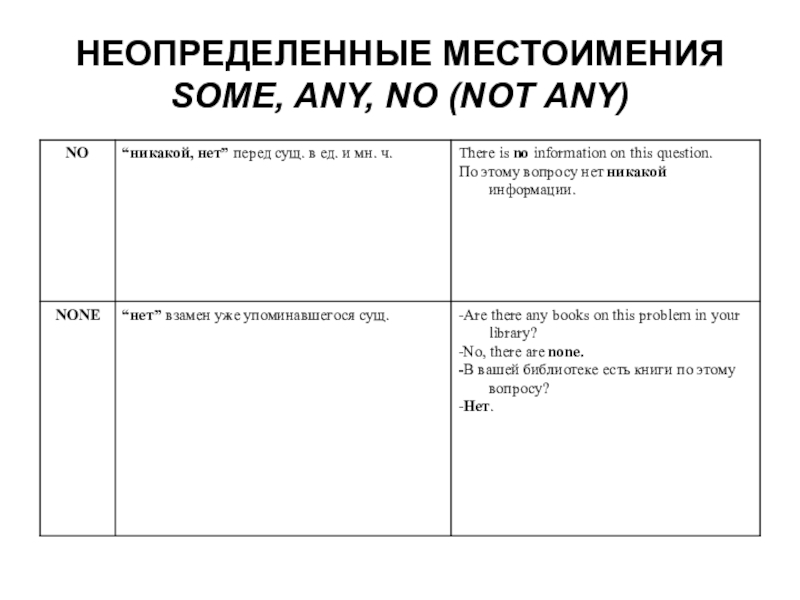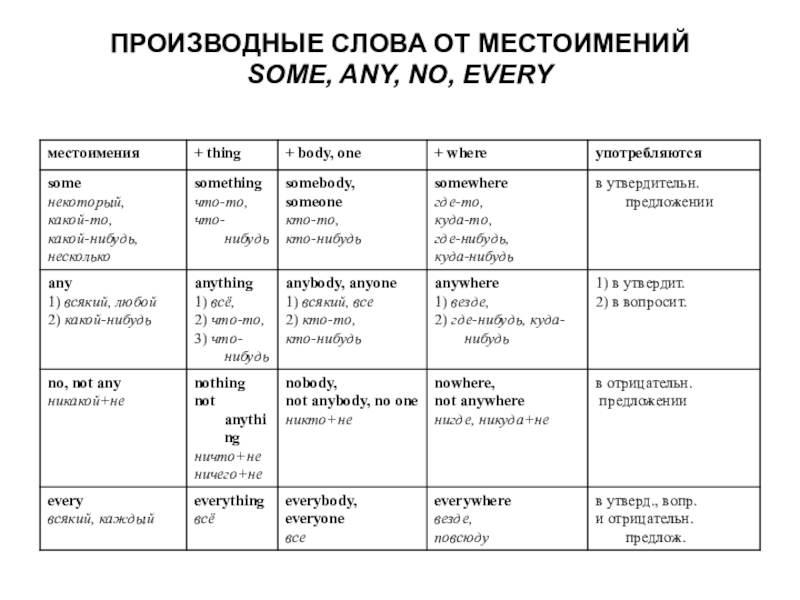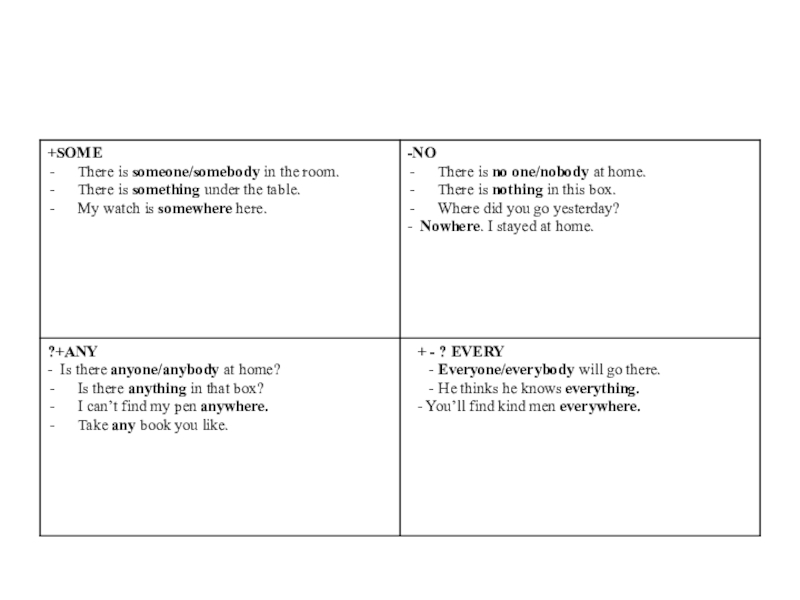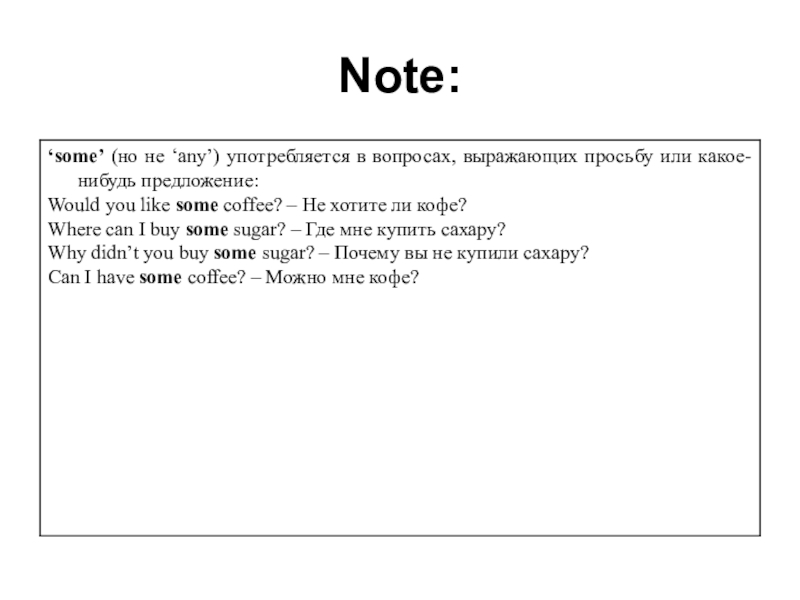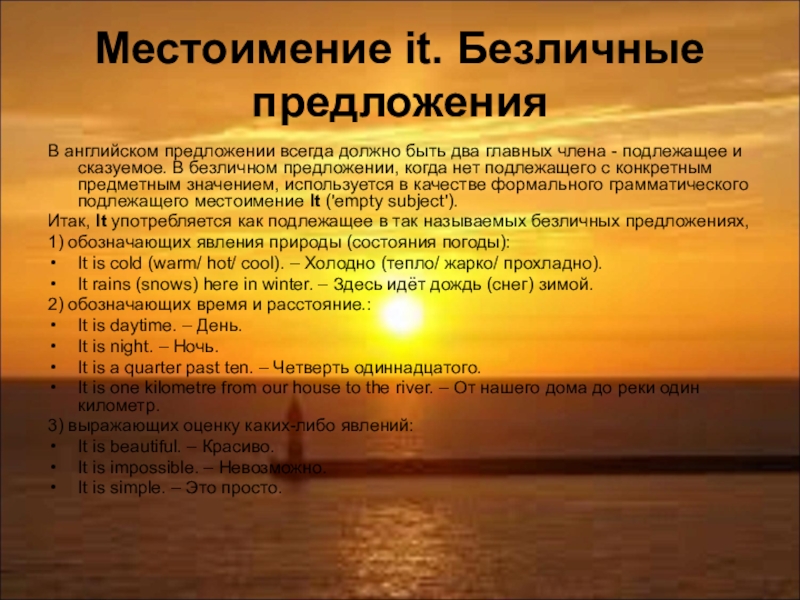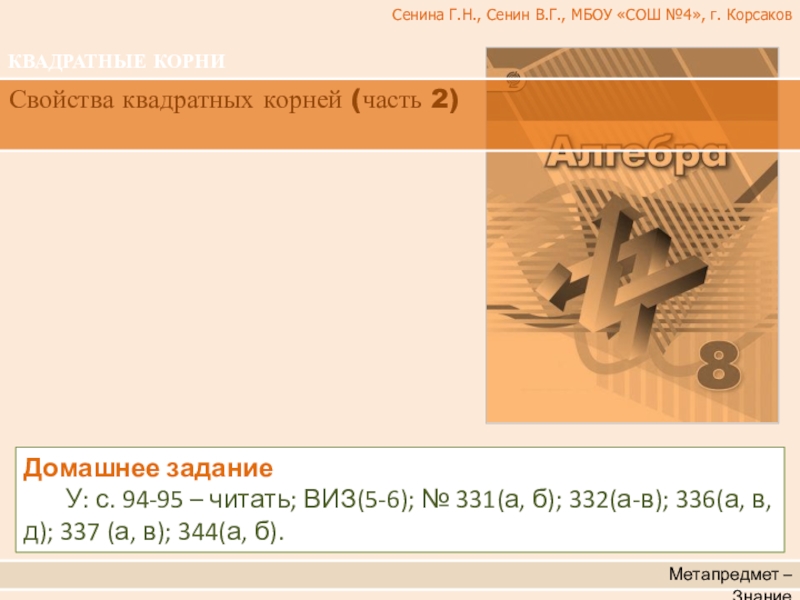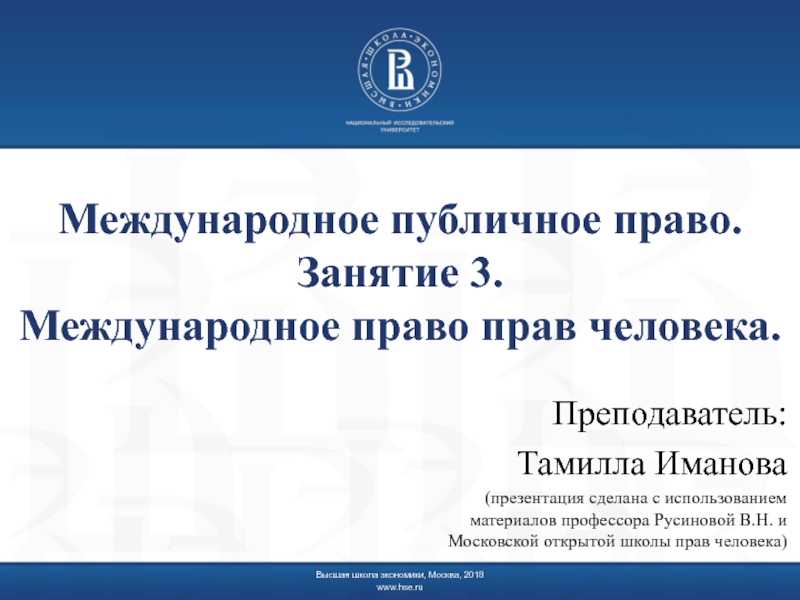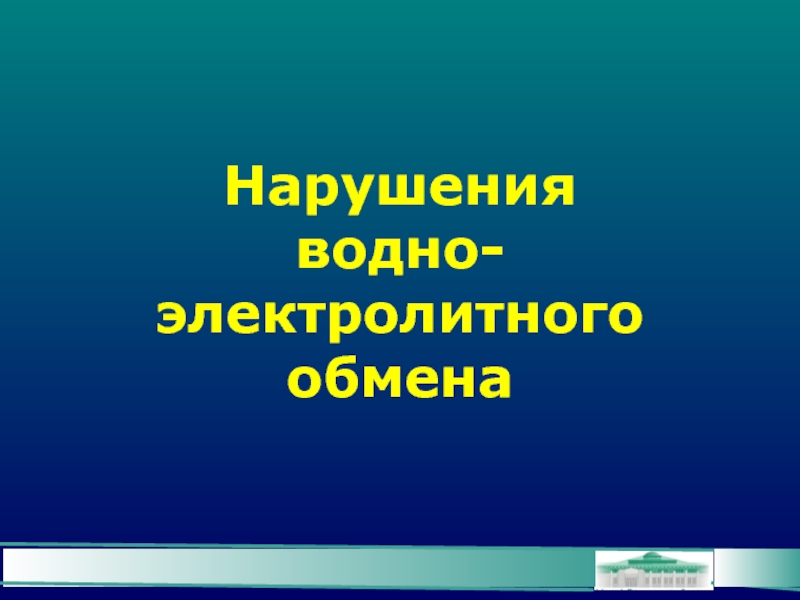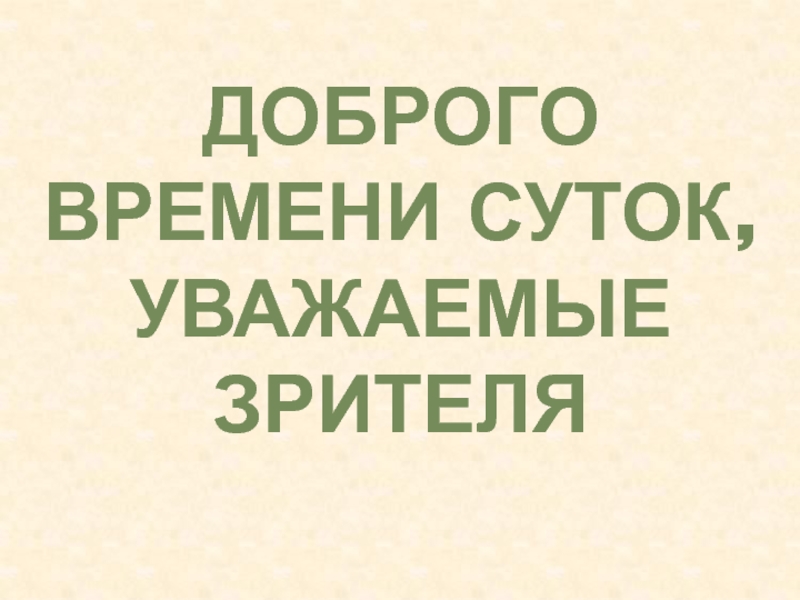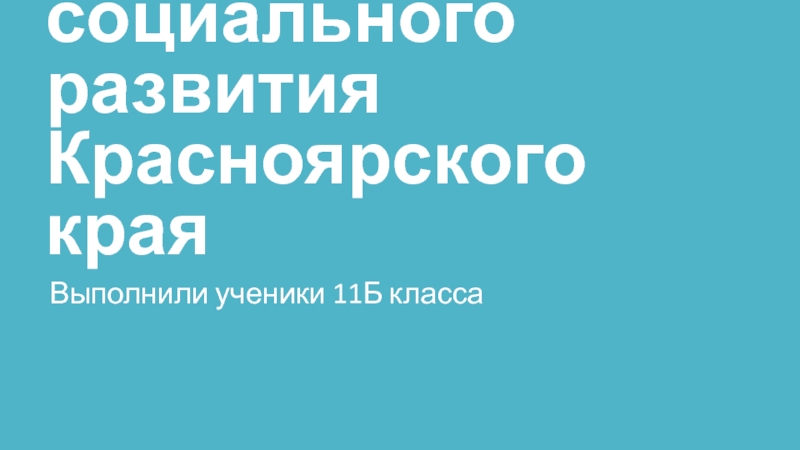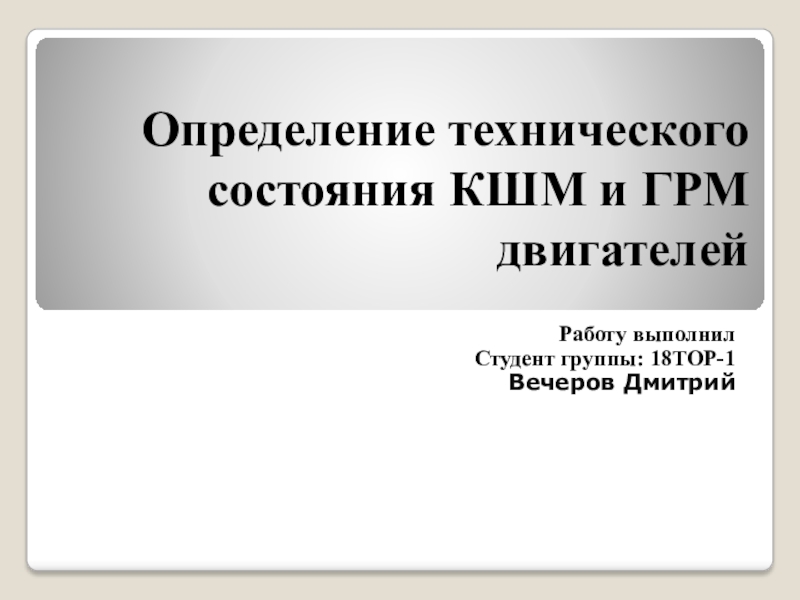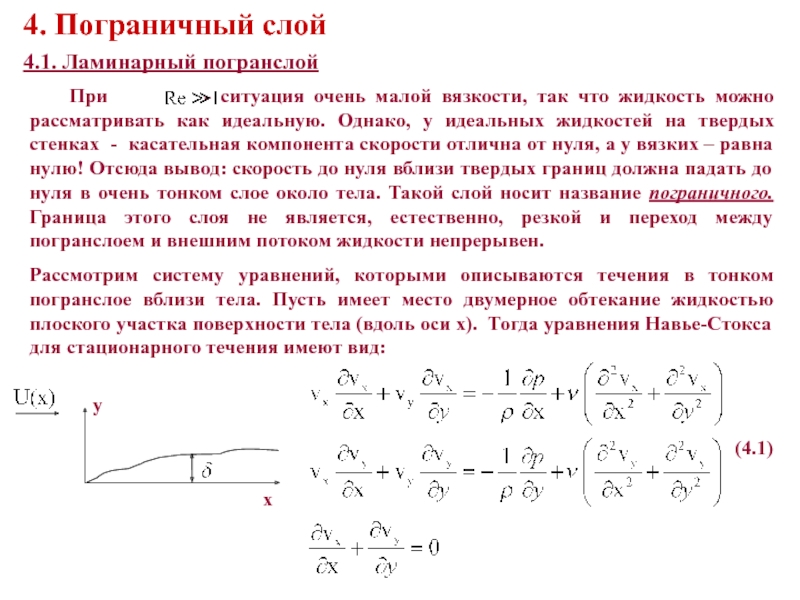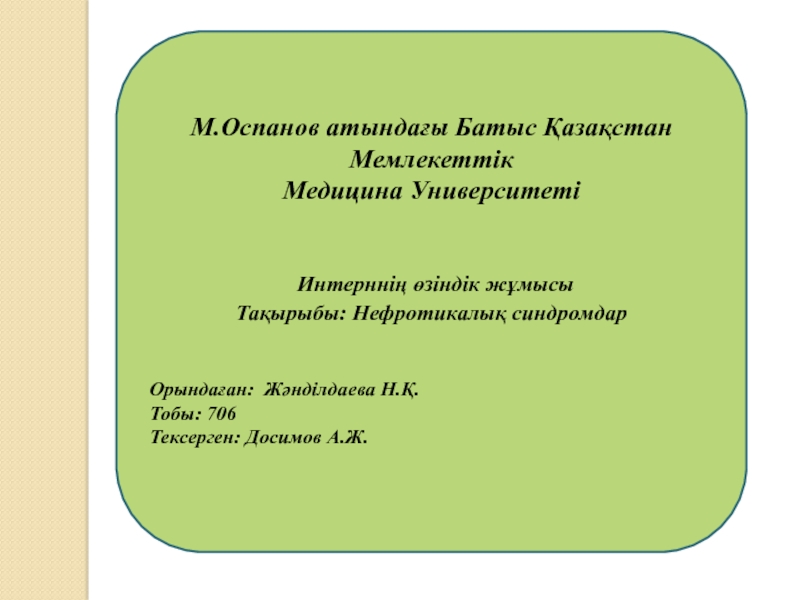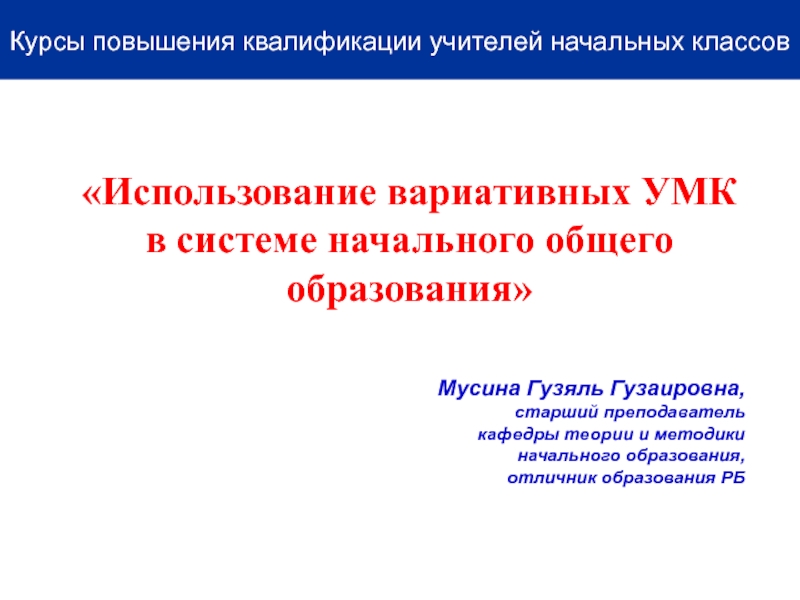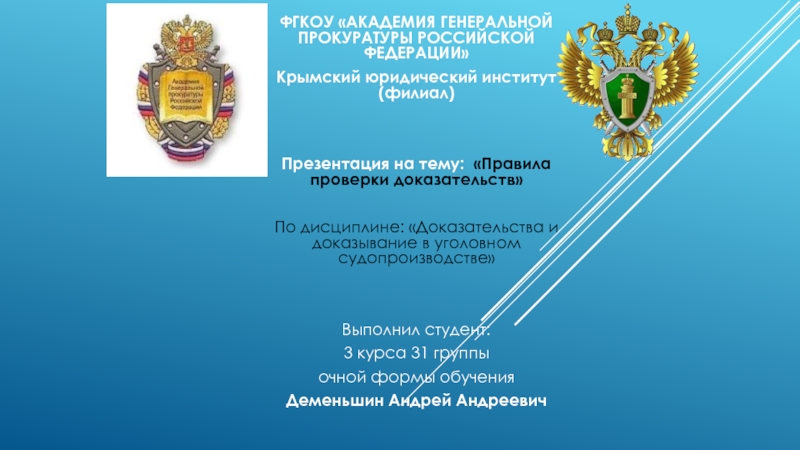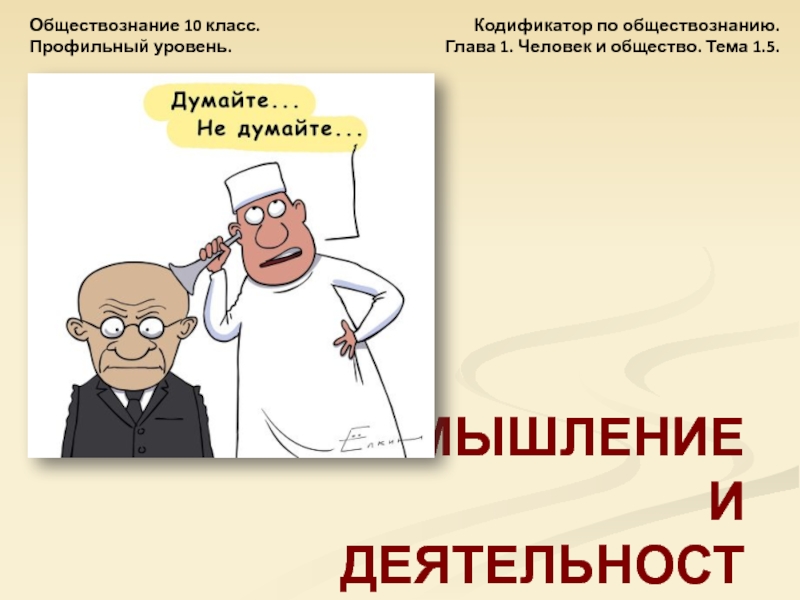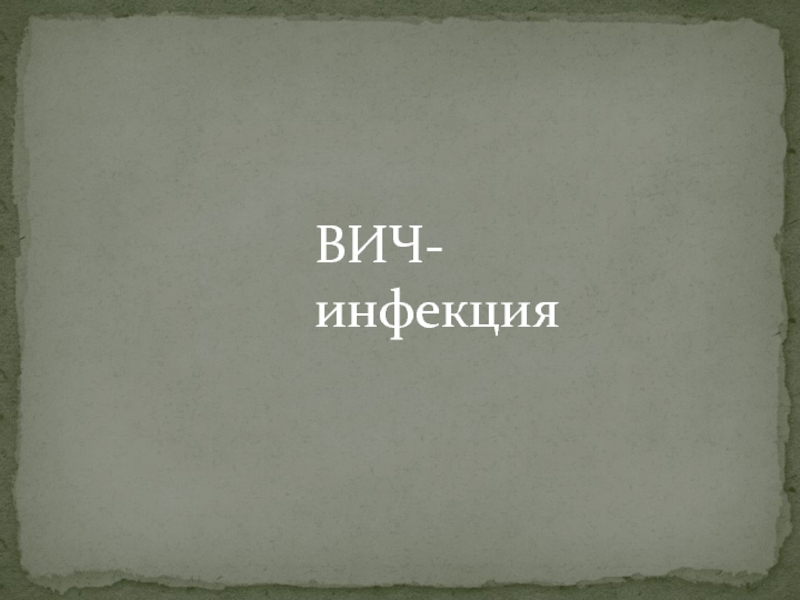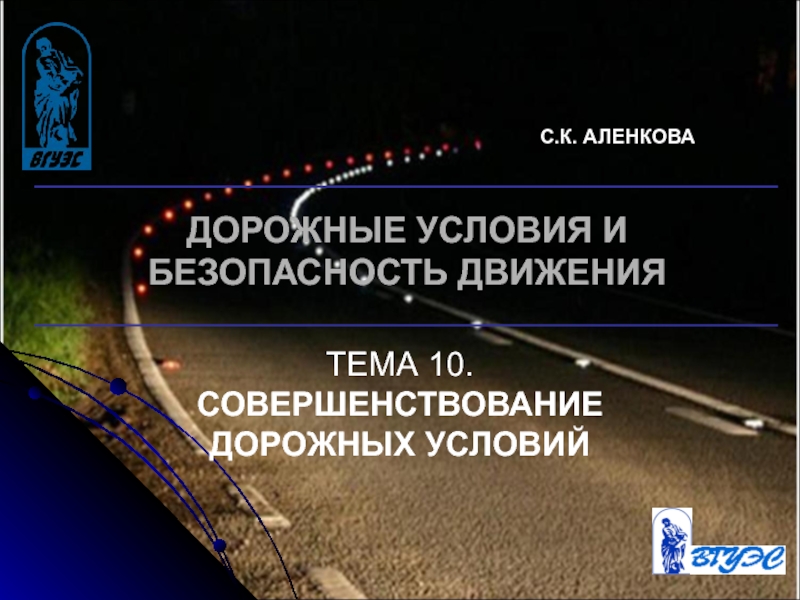Разделы презентаций
- Разное
- Английский язык
- Астрономия
- Алгебра
- Биология
- География
- Геометрия
- Детские презентации
- Информатика
- История
- Литература
- Математика
- Медицина
- Менеджмент
- Музыка
- МХК
- Немецкий язык
- ОБЖ
- Обществознание
- Окружающий мир
- Педагогика
- Русский язык
- Технология
- Физика
- Философия
- Химия
- Шаблоны, картинки для презентаций
- Экология
- Экономика
- Юриспруденция
Pronouns
Содержание
- 1. Pronouns
- 2. Личные местоимения и местоимения в объектном падеже Personal Pronouns and Objective Case
- 3. ABSOLUTE POSSESSIVE PRONOUNS
- 4. ABSOLUTE POSSESSIVE PRONOUNSWe use my/your,… +
- 5. ABSOLUTE POSSESSIVE PRONOUNSA friend of mine/
- 6. Write the new sentences using the structure
- 7. Write the new sentences using the structure
- 8. Choose the right wordIt’s their/theirs problem, not
- 9. Choose the right word6. My room is
- 10. Paraphrase the following using the possessive case.
- 11. Paraphrase the following using the possessive case.
- 12. Replace the nouns in the possessive case
- 13. OTHER, ANOTHER or THE OTHER?‘Another’ 1)=additional amount,
- 14. OTHER, ANOTHER or THE OTHER?‘The other’ 1)=part
- 15. OTHER, ANOTHER or THE OTHER?‘The other’ 1)=part
- 16. OTHER, ANOTHER or THE OTHER?‘Others’ 1)= additional
- 17. OTHER, ANOTHER or THE OTHER? Set ExpressionsOne
- 18. Личные и возвратные местоимения Personal and Reflexive Pronouns
- 19. Слайд 19
- 20. Местоимения ‘much’, ‘many’, ‘(a) little’, ‘(a) few’,
- 21. НЕОПРЕДЕЛЕННЫЕ МЕСТОИМЕНИЯ SOME, ANY, NO (NOT ANY)
- 22. НЕОПРЕДЕЛЕННЫЕ МЕСТОИМЕНИЯ SOME, ANY, NO (NOT ANY)
- 23. ПРОИЗВОДНЫЕ СЛОВА ОТ МЕСТОИМЕНИЙ SOME, ANY, NO, EVERY
- 24. Слайд 24
- 25. Note:
- 26. Местоимение it. Безличные предложенияВ английском предложении всегда
- 27. Скачать презентанцию
Слайды и текст этой презентации
Слайд 4ABSOLUTE
POSSESSIVE PRONOUNS
We use my/your,… + a noun (my hands/your
book):
My hands are cold.
Is this your book?
We use mine/yours,… without
a noun:Is this book mine or yours? (=my book or your book)
- I didn’t have an umbrella, so Ann gave me hers.
Слайд 5ABSOLUTE
POSSESSIVE PRONOUNS
A friend of mine/ a friend of his/
some friends of yours etc.
I went to meet a friend
of mine. (not ‘a friend of me’)It was a good idea of yours to go swimming
this afternoon.
In the same way we say:
- It was a good idea of Tom’s to go swimming.
Слайд 6Write the new sentences using the structure ‘a friend of
mine’
We met one of your relations.
We met a relation of
yours.____________________________________
2. Henry borrowed one of my books.
Henry borrowed a book of mine.
_______________________________________
3. Ann invited some of her friends to her flat.
Ann invited some friends of hers to her flat.
_______________________________________
Слайд 7Write the new sentences using the structure ‘a friend of
mine’
4. We had dinner with one of our neighbours.
We had
dinner with a neighbour of ours._______________________________________
5. I went on holiday with two of my friends.
I went on holiday with two friends of mine.
_______________________________________
6. Is that man one of your friends?
Is that man a friend of yours?
_______________________________________
Слайд 8Choose the right word
It’s their/theirs problem, not our/ours.
This is a
nice camera. Is it you/yours?
That’s not my/mine umbrella. My/mine is
black.Whose books are these? Your/Yours or my/mine?
Catherine is going out with her/hers friends this evening.
Слайд 9Choose the right word
6. My room is bigger than hers.
7.
They’ve got two children but I don’t know their names.
8.
Can we use your washing machine? Ours is broken.Слайд 10Paraphrase the following using the possessive case. Example: The son of
our manager — our manager's son
A 1) the house of
Mr. Smith; 2) a doll of the girls; 3) the works of Rembrandt; 4) a toy of the baby; 5) a meeting of the employees; 6) the bags of those women; 7) the orders of our boss; 8) the books of the children; 9) the cottage of my parents; 10) a garage of her cousin.В 1) coal deposits of the world; 2) the influence of the sun; 3) the atmosphere of the earth; 4) the joys and grieves of life; 5) the arrival of the ship; 6) icy mountains of Greenland; 7) the policy of the company; 8) gold reserves of Russia; 9) the gravitation of the planet; 10) the decisions of the commission.
С 1) the mother of Kate and Mary; 2) the children of my aunt Ann; 3) the paintings by Picasso and Dali; 4) the gun of the commander-in-chief; 5) the times of Ivan the Terrible; 6) the speech of the Minister of Foreign Trade; 7) the correspondent of the Herald Tribune; 8) a flat of my father-in-law; 9) the wives of Henry the Eighth; 10) oil wells of Saudi Arabia.
D 1) a cruise which lasts three weeks; 2) work which takes two hours; 3) a distance of five kilometres; 4) the operation which lasted four hours; 5) the flight which took three hours; 6) a semester of eight weeks; 7) the rest which lasted an hour; 8) a play of three acts; 9) a football
match which lasts ninety minutes; 10) a telephone conversation which lasts three minutes.
Слайд 11Paraphrase the following using the possessive case. Example: I must sleep
9 hours a day to feel well. — / must
have nine-hours^ sleep to feel well.1. Every day at noon we have a break, which lasts fifteen minutes. 2.1 can't understand why he is so tired. The distance he covered is a mile only. 3. The walk to the station was short. It took us ten minutes. 4. Last year we spent two weeks in Greece. The holiday was terrific. 5. If you want to get there.a trip will take you only five hours. 6. Don't take a training course that lasts a week. It won't do you good. 7.1 slept only five hours yesterday because my train came late. 8. Yesterday our lesson lasted thirty minutes because oar teacher was to leave at 12 o'clock. 9. If you want to have a voyage round Europe, you will need at least three weeks. 10. My workweek lasts five days.
Слайд 12Replace the nouns in the possessive case by the prepositional
groups where possible. Example: He always takes his brothers' bocks. —
He always takes books of his brothers.1. The only thing she wanted was to see her parents' house again. 2. No one could explain the young girl's behaviour at yesterday's supper. 3. Last Sunday's rugby match was disappointing. Our team lost. 4. The boy was looking through a children's magazine. 5. After an hour's break we resumed our work. 6. At that time he lived In a little flat for economy's sake. 7. It was four and a half hours' ride, 8.1 don't like cow's milk. 9. He was puzzled by Ann and Peter's visit. 10. When Friday came, he was at his wit's ends. 11. She dropped in at the chemist's to buy some aspirin. 12. This is John's coat, and that is Peter's.
Слайд 13OTHER, ANOTHER or THE OTHER?
‘Another’ 1)=additional amount, one more person
or thing
e.g. I’m going to have another (= one more)
piece of cake.2)= different, a different person or thing
e.g. Do you want to exchange this toaster for another (= different one) (one)?
another + number + plural noun = “more”
It will take another ten minutes (= 10 more minutes) to finish the job.
Слайд 14OTHER, ANOTHER or THE OTHER?
‘The other’ 1)=part of a set,
the second of two things or people=другой, второй из двух
e.g.
I’ve found one earring – do you know where the other (=the second earring) one is?‘Other’ 2)= additional to the item or person already mentioned
e.g. Are there any other people we should speak with?
Other + nouns
Слайд 15OTHER, ANOTHER or THE OTHER?
‘The other’ 1)=part of a set,
the second of two things or people=другой, второй из двух
e.g.
I’ve found one earring – do you know where the other (=the second earring) one is?‘Other’ 2)= additional to the item or person already mentioned
e.g. Are there any other people we should speak with?
Other + nouns
Слайд 16OTHER, ANOTHER or THE OTHER?
‘Others’ 1)= additional ones (without nouns)=остальные,
другие, прочие
e.g. I only know about this book, but there
must be others (=other books)2)=people in general, not including yourself
e.g. You shouldn’t expect others to do your work for you.
‘The others’ = остальные (из ограниченного числа предметов) – without nouns
e.g. Here is the only one book, where are the others?
Слайд 17OTHER, ANOTHER or THE OTHER?
Set Expressions
One way or another=тем или
другим путём, способом
One another= друг друга
Each other= друг друга
One…after another=
один за другимThe other day= на днях
In other words= другими словами
Other than= никто другой, как…
On the other hand= с другой стороны
Every other day= через день
Слайд 20Местоимения ‘much’, ‘many’, ‘(a) little’, ‘(a) few’, ‘a lot’, ‘plenty’ Pronouns
‘much’, ‘many’, ‘(a) little’, ‘(a) few’, ‘a lot’, ‘plenty’
Слайд 26Местоимение it. Безличные предложения
В английском предложении всегда должно быть два
главных члена - подлежащее и сказуемое. В безличном предложении, когда
нет подлежащего с конкретным предметным значением, используется в качестве формального грамматического подлежащего местоимение It ('empty subject').Итак, It употребляется как подлежащее в так называемых безличных предложениях,
1) обозначающих явления природы (состояния погоды):
It is cold (warm/ hot/ cool). – Холодно (тепло/ жарко/ прохладно).
It rains (snows) here in winter. – Здесь идёт дождь (снег) зимой.
2) обозначающих время и расстояние.:
It is daytime. – День.
It is night. – Ночь.
It is a quarter past ten. – Четверть одиннадцатого.
It is one kilometre from our house to the river. – От нашего дома до реки один километр.
3) выражающих оценку каких-либо явлений:
It is beautiful. – Красиво.
It is impossible. – Невозможно.
It is simple. – Это просто.
